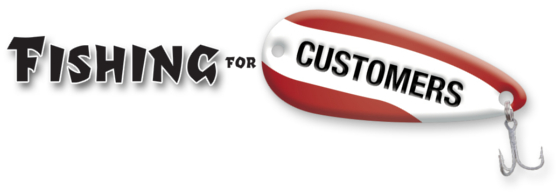Please don’t think that I’m suggesting that you should offend small groups of people. That’s not it at all.
I’ll bet the point becomes obvious as you read these examples.
Example Number One:
Everyone has heard the fable of the six blind men and the elephant. It’s a simple tale with an obvious lesson that even a small child can understand.
This story has been around for generations, primarily because it is such a vivid example of differences in perception.
I once alluded to those six men in a radio ad. I said “Like the six blind men and the elephant, everyone comes away with a highly personalized understanding of the process.”
Imagine how surprised I was to receive a call from the President of the local Association for the Blind. He was offended that I had chosen to portray non-sighted people as having “limited abilities and inferior intellect.”
In a market of roughly 500,000 persons, I had offended one.
Example Number Two:
Dan O’Day, formerly a top-rated major market disk jockey and currently a radio programming consultant told me of a podiatrist joke he told over the air on a San Francisco radio station. The girlfriend of a podiatrist called station management and complained. The manager then said to O’Day, “Dan, you’re never going to be a popular DJ if you alienate podiatrists.”
I just did a Google search. San Francisco, a city of six million people boasts 610 podiatrists.
Example Number Three:
In the early 90s I owned a pair of radio stations in East Texas. One of my clients was a local baker, famous for their cheesecakes.
We produced an ad for the bakery which said, in part: “New York, New York is a city of fifteen million people. New York, Texas is a city of fifteen people. New York, New York is famous for its cheesecakes. But the best cheesecakes in the world come from a secret recipe from New York, Texas.”
The ad ran for several months. New bakery customers commented on the ad, and bought more of their products.
Then one day a pair of ladies from New York, New York came into the bakery. They told the bakery owners how offended they were by that ad. How DARE anyone claim better cheesecakes than those that came from NY City?
Then they each purchased a cheesecake and left.
I got a call from the bakery instructing me to stop broadcasting the ad.
I pointed out that the ad was obviously working well. Not only had those ladies been motivated to visit the store, but they had also purchased product.
I argued that the chances of anyone else from New York, New York hearing the ad were infinitesimally small. I even refreshed the owners’ memories of how much positive response this ad had generated for their store.
Their minds were made up. They didn’t wish to offend anyone. “Please pull the ad.“
Figured it out? The point those three examples illustrated?
Sure you did. It’s obvious.
There is no magic formula for advertising which will appeal to everyone.
Some people exposed to your ad won’t care.
Others will quite likely be a bit put off (assuming the ad was any good).
You see, there’s only one universal truth in advertising: any use of media that gets people emotionally involved will offend some other people.
Great advertising runs the risk of being criticized. Bad advertising runs the risk of not being noticed at all. You’ve seen those bad ads. They are are so sterilized, so flaccid, so lifeless that they have no ability to emotionally pull us at all.
You probably don’t remember those ads.
And that is the most obvious confirmation of my point.
